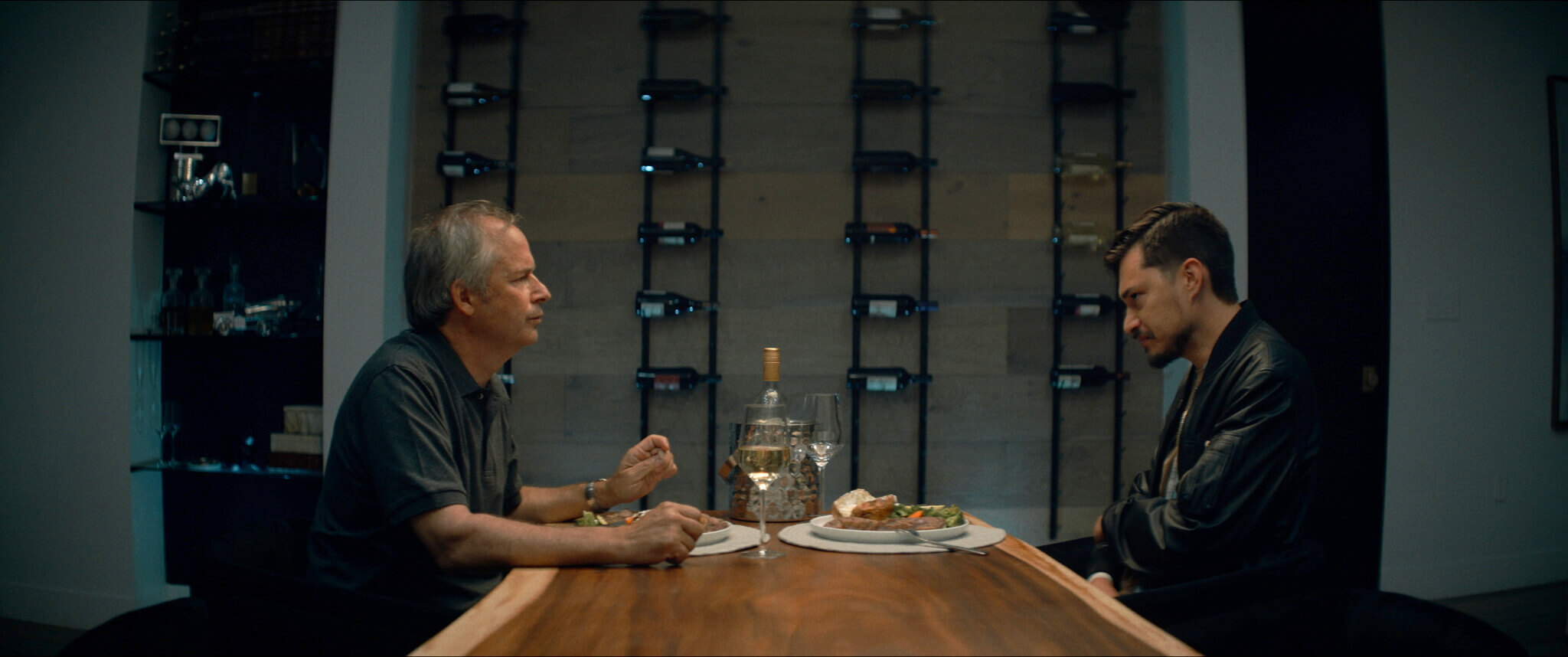Hypochondriac [2022] is screenwriter Addison Heimann’s directorial debut that depicts the downward spiral of a young potter battling childhood trauma. Will (Zach Villa) seems to have his life together with a job he enjoys, a lover in life, and the distance needed between himself and his demented mother. When self-help and distractions no longer protect Will from his past, he slips into frequent psychoneurotic episodes.
Cold Open: Heimann starts Hypochondriac off in the shadows and violently builds the foundation of Will’s trauma experienced in childhood. It is hard to watch and remarkably heartbreaking; it’s real. Real-world reality continues, Will is an adult complete with the millennial mental health culture where everyone is an expert on micro-aggressions and coping mechanisms. It’s unclear if Heimann intentionally writes it as so but Hypochondriac openly mocks the generational approach to “self-help” ⎯ a fresh take that allows the characters to fail and seek legitimate help. Heimann still takes the opportunity to make a commentary on the health industry when patients do seek aid. Overall, Heimann communicates that mental health concerns are serious, have deep roots, and need professional care that actually cares! Will illustrates every phase of this commentary.

Framing: Hypochondriac does not get bogged down by intricate cinematography like other dramatic thrillers of this nature. Heimann (along with his cinematography and photography team) was able to capture scenes both wide and close without having to move around the scene too much. This kept moments between characters extremely focused, allowing the audience to absorb more minor details within dialogue or slight character nuances.
A Little Drag: At its heart, Hypochondriac is a story about a man battling against his childhood trauma. This is not a new trope by any standard, but it is the singular substance in Heimann’s film. Without supporting cast performances or challenges, Will carries the story into a stonewalling second act. There is an attempt to shine a light on Will’s struggle, but because it is nothing new to the audience, the impact is lost interest before the whirlwind third act begins.

Symbolism: Heimann does not hold back on the symbolism in Hypochondriac. The lack of subtly is welcomed. Will taking on the career of a potter and molding his life to the shape he wants is a fine illustration of the ultimate control he strives to obtain in his everyday life. As Will slips into his psycho-episodes, losing control of his reality, the implementation of an imaginary “companion” plays perfectly with the embodiment of his childhood trauma.
Hypochondriac holds back the flash and delivers a direct statement on the latent impacts of early trauma. Will’s struggle is relatable and refreshing in the end, even if it takes a little longer to get there.

Watch Hypochondriac Now
